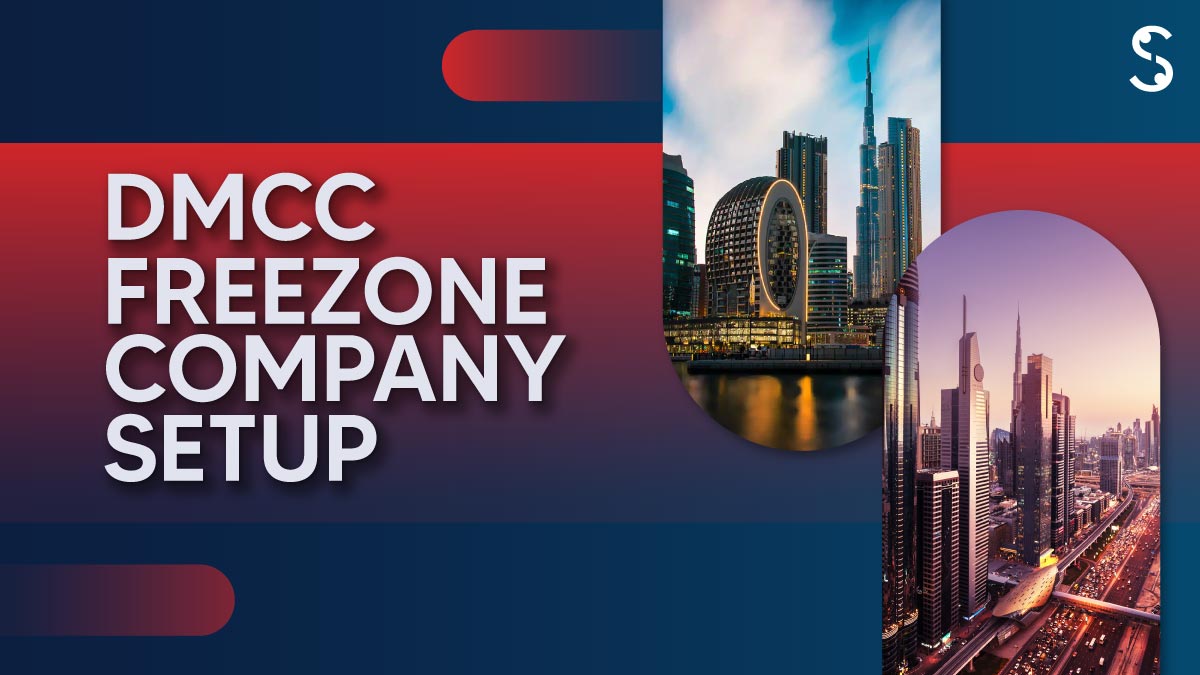Table of Contents
ToggleYou need not go farther than Dubai if you want to launch a business overseas. The Middle East and North Africa (MENA) region’s well-known commercial hub, Dubai, offers a multitude of advantages for enterprises and corporations wishing to prosper, grow, and connect with the rest of the globe.
The UAE economy is expected to expand at its quickest rate since 2011, above earlier projections, despite a worldwide pandemic and a recession. In 2023, the UAE GDP is projected to expand by 4.2%. Numerous entrepreneurs are moving into the city as a result of the development opportunities. Thankfully, establishing a business in Dubai is rather simple, especially with the aid of the UAE’s free zones.
What you need to know Before Setting up a Business in Dubai?
Before starting the process of setting up your business in Dubai, there are a few essential things you should be aware of. Let’s examine each of them separately.
Economic Zone: Free Zones vs Offshore
Before you can open for business, you must decide whether you wish to operate in an offshore site or a free zone. Depending on your objectives, each solution has benefits and requirements of its own.
Free Zone
Consider applying for a License to set up a business in the Dubai free zone if you want complete ownership of your business. The Dubai government came up with the concept of a free zone to entice foreign investors to establish businesses there. In essence, it’s a special economic zone where company owners may benefit from complete ownership, 9% corporate taxation (to be applied to UAE enterprises on revenues above AED 375,000), and 0% personal income tax.
The fact that direct trade with the UAE market is not allowed is one of the biggest disadvantages of operating a business in a free zone.
In Dubai at the moment, there are about 30 free zones in operation. Each free zone is often built around a certain sector category and grants permits to businesses that fall within those categories. Here are a few instances:
- Dubai Multi Commodities Centre (DMCC)
- Dubai International Financial Centre (DIFC)
- Dubai Internet City (DIC)
Offshore
The same benefits are available to offshore companies that register in a free zone. However, it does not take the place of a free zone company. The main contrast between an offshore company and a free zone corporation is the nature of the business. Offshore firms are allowed to operate outside the UAE but not inside. There are no requirements for minimal capital contributions before formation.
A sponsor is necessary, preventing you from functioning as a free zone firm and limiting your foreign ownership to 49%.
Types of Business License
You’ll need to choose a zone as well as the sort of License that is necessary. There are 3 primary sorts of permits you may apply for, and the Department of Economic Development (DED) is responsible of issuing them:
1. Commercial License
You need a commercial License to start a business in Dubai that engages in trade operations or the purchasing and selling of items. This License can apply to companies involved in sales, logistics, travel and tourism, general retail, and real estate.
2. Industrial License
Businesses that participate in manufacturing operations that convert raw materials and resources from the natural world into finished goods, either manually or mechanically, are granted this sort of License. Businesses like those who produce metal, textiles or paper are covered by this License.
3. Professional License
Businesses that are artisans, craftsmen or service providers are given the professional License. Medical, cosmetic, and repair services are a few examples of companies that seek for this kind of permit.
Sponsorship
No local sponsor is required to start a business in a free zone like DMCC. The ability to establish an organization with 100% foreign ownership without the necessity for a UAE native as a partner or sponsor is one of the key advantages of incorporating in a free zone.
What are the Steps for Setting up a Business in Dubai?
These are the standard procedures for starting a business in the UAE. To make sure you adhere to all legal and regulatory standards, it is crucial to get legal and financial advice.
Following are the three key steps for setting up a business in Dubai: –
1. Identify the Nature of Your Business Activity
The success of your firm depends on your decision on the appropriate business activity. To choose the activity that is best for you, you must first understand your drives and passions. When you have a list of possible business ventures, you should do market research to determine whether or not they would be successful in the area you are targeting.
You may use this information to assess the market’s competitiveness and demand for your product or service.
You may discover the target market for your organization and their demands by conducting market research. Additionally, after you have all of this knowledge, you may select the business activity that is most appropriate for your firm and the market you are trying to reach.
2. Determine Your Company’s Legal Structure
Investors can choose from a variety of jurisdictions in Dubai to domicile their enterprises. It is important to comprehend the differences between a free zone firm and a mainland corporation. Each jurisdiction has benefits and drawbacks.
To take advantage of 0% corporation and personal tax and 100% foreign ownership, starting a business in a free zone might be profitable. An obstacle to doing direct business in the UAE market through a free zone corporation is that it is not possible.
However, there may be restrictions on foreign ownership, registering a mainland business in Dubai allows you to engage in direct trade within the UAE market.
3. Apply for the Necessary Approvals
It’s critical to acquire the required Licenses and permits in order to lawfully run your firm. You must submit an application for a License to the Department of Economic Development if you are starting a mainland firm in Dubai. (DED). Your business strategy, leasing agreement, and other pertinent papers must be submitted as part of this procedure.
You must submit an application for a License to the appropriate free zone authorities if you are establishing your business in a free zone. Since each free zone has its unique licensing and registration procedures, it is crucial to learn about and comprehend the specifications of the one in which you are most interested. You may lawfully run your business in Dubai if you get the required permissions and Licenses.
Once you have your company license, you must then apply for a business bank account. You need to hold a valid UAE resident visa among other things in order to create a bank account. In order to fulfill your banking and business needs, you must apply for a UAE resident visa and Emirates ID at this point in the process.
Starting a business in the UAE
In conclusion, there are several benefits to starting a business in the UAE, such as its strategic position, business-friendly climate, world-class infrastructure, access to a wide range of markets, and highly qualified workforce. Additionally, Dubai is home to top-notch infrastructure, such as modern ports, airports, and telecommunications networks, which makes it simpler for businesses to transfer goods and connect with clients and consumers.
Dubai is a desirable market for many sectors due to its diversified population and flourishing economy, which give firms access to a wide spectrum of consumers and clients.
Additionally, Dubai employs a large number of experts from all over the world who are highly talented and bilingual. This makes it simpler for companies to recruit suitable workers to fill their positions.
The correct business activity must be chosen, and the requisite approvals and licenses must be obtained from the appropriate authorities, in order to establish a business in Dubai.
In general, setting up a business in Dubai from the UK is a fantastic opportunity for business owners wishing to grow their company or join a new market.







